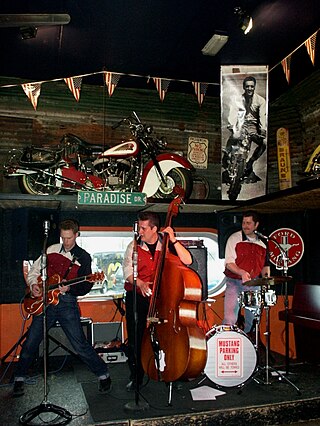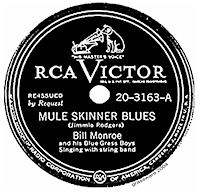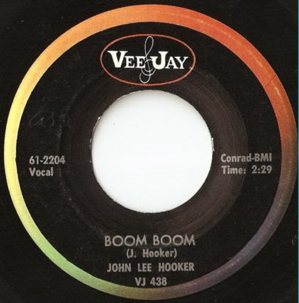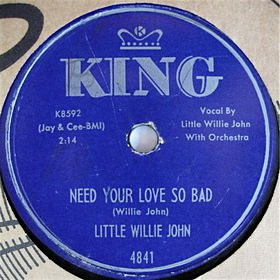Related Research Articles
Instrumental rock is rock music that emphasizes instrumental performance and features very little or no singing. Examples of instrumental music in rock can be found in practically every subgenre of the style. Instrumental rock was most popular from the mid-1950s to mid-1960s, with artists such as Bill Doggett Combo, The Fireballs, The Shadows, The Ventures, Johnny and the Hurricanes and The Spotnicks. Surf music had many instrumental songs. Many instrumental hits had roots from the R&B genre. The Allman Brothers Band feature several instrumentals. Jeff Beck also recorded two instrumental albums in the 1970s. Progressive rock and art rock performers of the late 1960s and early 1970s did many virtuosic instrumental performances.

Ray Edward Cochran was an American rock and roll musician. Cochran's songs, such as "Twenty Flight Rock", "Summertime Blues", "C'mon Everybody" and "Somethin' Else", captured teenage frustration and desire in the mid-1950s and early 1960s. He experimented with multitrack recording, distortion techniques, and overdubbing even on his earliest singles. Cochran played the guitar, piano, bass, and drums. His image as a sharply dressed and attractive young man with a rebellious attitude epitomized the stance of the 1950s rocker, and in death he achieved iconic status.

Rockabilly is one of the earliest styles of rock and roll music. It dates back to the early 1950s in the United States, especially the South. As a genre it blends the sound of Western musical styles such as country with that of rhythm and blues, leading to what is considered "classic" rock and roll. Some have also described it as a blend of bluegrass with rock and roll. The term "rockabilly" itself is a portmanteau of "rock" and "hillbilly", the latter a reference to the country music that contributed strongly to the style. Other important influences on rockabilly include western swing, boogie-woogie, jump blues, and electric blues.

David William Edmunds is a Welsh singer-songwriter, guitarist and record producer. Although he is mainly associated with pub rock and new wave, having many hits in the 1970s and early 1980s, his natural leaning has always been towards 1950s-style rock and roll and rockabilly.

Robert Alan Krieger is an American guitarist and founding member of the rock band the Doors. Krieger wrote or co-wrote many of the Doors' songs, including the hits "Light My Fire", "Love Me Two Times", "Touch Me", and "Love Her Madly". When the Doors disbanded shortly after the death of lead singer Jim Morrison, Krieger continued to perform and record with other musicians including former Doors bandmates John Densmore and Ray Manzarek. In the 2023 edition of Rolling Stones's 250 Greatest guitarists of all time, he was repositioned at number 248.

Auburn "Pat" Hare was an American electric blues guitarist and singer. His heavily distorted, power chord–driven electric guitar performances in the early 1950s is considered an important precursor of heavy metal music. His guitar work with Little Junior's Blue Flames had a major influence on the rockabilly style, and his guitar playing on blues records by artists such as Muddy Waters was influential among 1960s British Invasion blues rock bands such as the Rolling Stones and the Yardbirds.

Having a Rave Up with the Yardbirds, or simply Having a Rave Up, is the second American album by English rock group the Yardbirds. It was released in November 1965, eight months after Jeff Beck replaced Eric Clapton on guitar. It includes songs with both guitarists and reflects the group's blues rock roots and their early experimentations with psychedelic and hard rock. The title refers to the driving "rave up" arrangement the band used in several of their songs.

"Tequila" is a 1958 Latin-inspired surf instrumental song written by Chuck Rio and recorded by American Rock and roll band The Champs. "Tequila" became a No. 1 hit on both the pop and R&B charts at the time of its release and continues to be strongly referenced in pop culture to this day.

"Blue Yodel no. 8, Mule Skinner Blues" is a classic country song written by Jimmie Rodgers. The song was first recorded by Rodgers in 1930 and has been recorded by many artists since then, acquiring the de facto title "Mule Skinner Blues" after Rodgers named it "Blue Yodel #8".
Marvin Karlton Rainwater was an American country and rockabilly singer and songwriter who had several hits during the late 1950s, including the self-penned "Gonna Find Me a Bluebird" and "Whole Lotta Woman," which hit #1 on the UK Singles Chart. He was known for wearing Native American fashion-themed outfits on stage and claimed to have quarter-blood Cherokee ancestry.

The Best of Dolly Parton is a compilation album by American singer-songwriter Dolly Parton. It was released on November 9, 1970, by RCA Victor. The album was produced by Bob Ferguson. It includes some of Parton's early hits, a few non-single album tracks, and two previously unreleased tracks. The album peaked at number 12 on the Billboard Top Country Albums chart. The single, "Mule Skinner Blues " peaked at number three on the Billboard Hot Country Songs chart and earned Parton a nomination for Best Female Country Vocal Performance at the 13th Annual Grammy Awards. The album was certified Gold by the RIAA on June 12, 1978, for sales of 500,000 copies.

Ronald Monroe Dawson was an American rockabilly singer, guitarist and drummer, nicknamed The Blond Bomber. Although he achieved regional success in the 1950s, his popularity peaked internationally with tours in the 1980s and 1990s.
"Wang Dang Doodle" is a blues song written by Willie Dixon. Music critic Mike Rowe calls it a party song in an urban style with its massive, rolling, exciting beat. It was first recorded by Howlin' Wolf in 1960 and released by Chess Records in 1961. In 1965, Dixon and Leonard Chess persuaded Koko Taylor to record it for Checker Records, a Chess subsidiary. Taylor's rendition quickly became a hit, reaching number thirteen on the Billboard R&B chart and number 58 on the pop chart. "Wang Dang Doodle" became a blues standard and has been recorded by various artists. Taylor's version was added to the United States National Recording Registry in 2023.

"Boom Boom" is a song written by American blues singer and guitarist John Lee Hooker and recorded October 26, 1961. Although it became a blues standard, music critic Charles Shaar Murray calls it "the greatest pop song he ever wrote". "Boom Boom" was both an American R&B and pop chart success in 1962 and a UK top-twenty hit in 1992.
"One Way Out" is a blues song that was recorded in the early 1960s by both Sonny Boy Williamson II and Elmore James. A reworking of the song by G. L. Crockett, titled "It's a Man Down Here", appeared on the Billboard record charts in 1965. In 1971, the Allman Brothers Band recorded an updated live version of the song, which was included on their popular Eat a Peach album (1972).
Cuca Records was an American independent record label, of Sauk City, Wisconsin, United States, founded by James Kirchstein in 1959 and actively producing LP and 45 rpm recordings until the early 1970s. During this period, Cuca recorded and released primarily polka and ethnic music on LP but also issued other musical styles, including pop, rhythm and blues, folk, and traditional jazz. Most musicians recorded by Cuca were from Wisconsin or adjacent states. Consequently, Cuca's recorded documents represent a focused view of Wisconsin musical performance during these years.
Soma Records was an American record label, based in Minneapolis, Minnesota, and owned by wholesale record distributor Amos Heilicher. The Soma name was "Amos" spelled backwards. Heilicher, along with his brother Danny, was also in the jukebox and wholesale record distribution businesses, and owned the Musicland chain of retail music stores.

"Need Your Love So Bad", sometimes known as "I Need Your Love So Bad", is a song first recorded by Little Willie John in 1955. Called a "unique amalgam of gospel, blues and rhythm & blues", it was John's second single as well as his second record to reach the US charts.
The Vibro Champs are a rockabilly band based in Minneapolis, Minnesota, founded in 1992. They have released four albums, most recently Mr. International in 2009.
References
- 1 2 Tim Campbell (June 8, 2013). "Obituary: Jim Sundquist, hitmaking guitarist with the Fendermen". Star Tribune . Retrieved April 9, 2015.
- ↑ Koda, Cub. The Fendermen at AllMusic . Retrieved 2012-04-20.
- 1 2 Colin Larkin, ed. (1997). The Virgin Encyclopedia of Sixties Music (First ed.). Virgin Books. pp. 193/4. ISBN 0-7535-0149-X.
- ↑ Roberts, David (2006). British Hit Singles & Albums (19th ed.). London: Guinness World Records Limited. p. 197. ISBN 1-904994-10-5.
- ↑ Ultra Modern (CD liner notes). The Vibro Champs. Sci-Fi Western. 1999.
{{cite AV media notes}}: CS1 maint: others in cite AV media (notes) (link) - ↑ Stranger Than You Think (CD liner notes). The Vibro Champs. Ultramodern Records/Sci-Fi Western. 1996.
{{cite AV media notes}}: CS1 maint: others in cite AV media (notes) (link) - ↑ Campbell, Tim (2013-06-09). "He scored Minnesota's first big hit". Star Tribune . Minneapolis-St. Paul. Retrieved 2024-05-16.
- ↑ Doc Rock. "The Dead Rock Stars Club 2013 January to June". Thedeadrockstarsclub.com. Retrieved 2013-06-15.
- ↑ Logan Wroge (April 14, 2016). "Fendermen singer Phil Humphrey dies, leaving behind one-hit wonder legacy". Wisconsin State Journal.
- ↑ Mills, Jon "Mojo". Review of Mule Skinner Blues at AllMusic